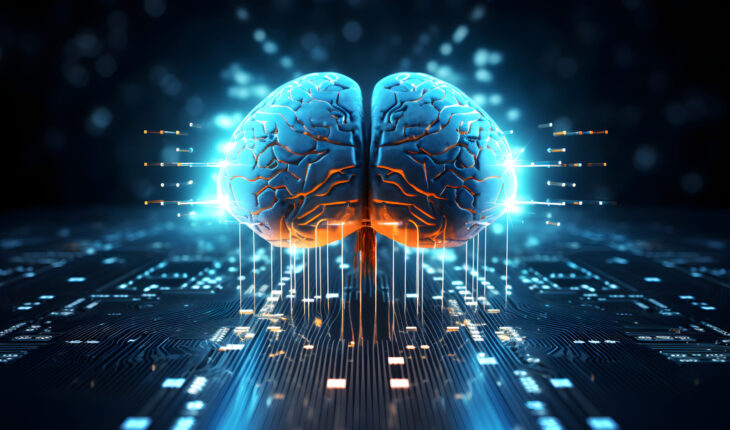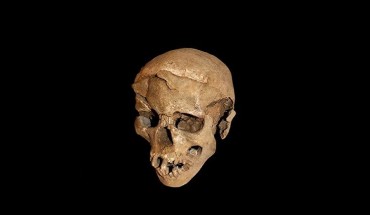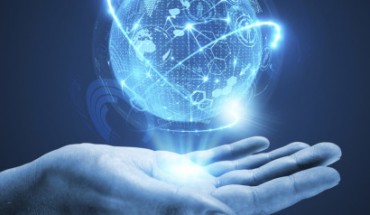By: Farzin Espahani
Introduction
The rise of artificial intelligence (AI) is transforming human society at an unprecedented pace. While AI is often discussed in terms of technological advancements, economic impact, and ethical concerns, it also poses significant implications for human evolution—both culturally and biologically. Dual Inheritance Theory (DIT), which explores the interplay between genetic and cultural evolution, provides a robust framework for analyzing how AI may shape our species in the long run.
As AI becomes more integrated into our daily lives, it influences cultural transmission mechanisms, alters selective pressures, and even affects biological evolution. This article explores these effects through the lens of DIT, drawing upon insights from leading anthropologists and evolutionary biologists who have examined the interplay of genetics and culture in shaping human development.
AI as a Catalyst for Cultural Evolution
Cultural evolution, a fundamental aspect of DIT, occurs as humans transmit knowledge, customs, and technologies across generations. AI accelerates this process by:
1. Enhancing Knowledge Transmission
Traditionally, cultural knowledge has been passed down through vertical (parent-to-child), horizontal (peer-to-peer), and oblique (expert-to-community) learning. AI disrupts these pathways by introducing algorithm-driven learning systems that enable rapid, widespread dissemination of knowledge. Examples include:
- AI-powered search engines providing instant access to vast amounts of information.
- AI-driven recommendation systems that curate personalized content, influencing cultural norms and behaviors.
- AI tutors and chatbots that optimize education across different populations.
By automating and optimizing information flow, AI modifies how cultural knowledge is structured, transmitted, and retained across human populations.
2. Changing Social Structures and Norms
As AI automates labor and decision-making processes, it redefines human interactions and societal roles. For example:
- AI-driven automation shifts economic structures, reducing the necessity for certain human jobs while creating new cognitive and creative opportunities.
- The increasing role of AI in personal relationships (e.g., AI companions, dating algorithms) changes traditional courtship and family dynamics.
- AI-generated content, including deepfakes and personalized media, influences cultural perceptions of reality and authenticity.
These shifts reshape social behaviors, values, and institutional frameworks, exerting evolutionary pressures on human cognition and adaptation strategies.
3. Altering Cognitive and Behavioral Patterns
AI systems designed for efficiency and engagement influence human thought processes in profound ways:
- Attention and Memory: The reliance on AI for information storage (e.g., cloud computing, digital assistants) may lead to cognitive offloading, potentially affecting memory retention and neural plasticity.
- Decision-Making: Algorithmic decision-support systems in healthcare, finance, and governance alter human judgment and problem-solving behaviors.
- Emotional and Social Intelligence: AI-driven communication tools (e.g., chatbots, AI therapists) modify human interactions, potentially impacting social intelligence and emotional resilience.
Such changes in cognition and behavior highlight the evolutionary significance of AI as a cultural force shaping human societies.
AI’s Impact on Biological Evolution
While cultural evolution operates independently of genetic inheritance, it can exert selective pressures that drive biological changes over time. AI influences human biology in several key ways:
1. AI in Healthcare and Longevity
AI-driven innovations in medicine, including early disease detection, precision medicine, and AI-assisted drug development, contribute to increased human lifespan and altered selective pressures. As humans live longer, reproductive patterns and genetic fitness landscapes may shift, influencing evolutionary trajectories.
2. Genetic Engineering and Human Enhancement
AI accelerates advancements in genetic editing technologies such as CRISPR, opening possibilities for human genetic modifications. This may lead to:
- Enhanced cognitive and physical traits.
- Resistance to genetic diseases.
- Potential ethical and social implications regarding genetic inequality and artificial selection.
As AI-driven genetic enhancements become more widespread, they could influence human evolutionary pathways in unprecedented ways.
3. Human-Machine Integration and Cybernetic Evolution
The development of brain-computer interfaces (BCIs) and AI-driven prosthetics blurs the line between biology and technology. Potential evolutionary consequences include:
- Augmented cognitive abilities through AI-assisted neural interfaces.
- Enhanced physical capabilities via AI-controlled prosthetic limbs and exoskeletons.
- The possibility of post-human evolution, where AI-human hybrids redefine what it means to be human.
This convergence of AI and biology represents a new frontier in human evolution, one that challenges traditional concepts of natural selection.
Comparative Analysis with Historical Evolutionary Shifts
To understand the long-term evolutionary impact of AI, we can compare it to previous major shifts in human history:
- The Agricultural Revolution (10,000 BCE): Transitioning from hunter-gatherer societies to agricultural settlements fundamentally altered human diet, social structures, and genetic adaptations (e.g., lactose tolerance).
- The Industrial Revolution (18th-19th century): Mechanization and urbanization reshaped labor dynamics, intelligence distribution, and disease resistance.
- The Information Age (20th-21st century): Digital technologies revolutionized communication, learning, and cognitive processing.
- The AI Revolution (21st century and beyond): AI is poised to introduce changes of comparable magnitude, impacting human cognition, social evolution, and genetic selection.
By examining these precedents, we recognize AI’s role as a transformative force that could shape human evolution for generations to come.
Challenges and Ethical Considerations
As AI accelerates cultural and biological evolution, it also presents challenges and ethical dilemmas:
- Cultural Homogenization: The global reach of AI-driven media and education may reduce cultural diversity, leading to the dominance of a few cultural paradigms at the expense of localized traditions.
- Cognitive Dependence: Increased reliance on AI for decision-making and memory storage may weaken critical thinking and problem-solving abilities in future generations.
- Inequality and Access: Disparities in access to AI technologies could exacerbate social and genetic inequalities, creating an evolutionary divide between technologically enhanced and non-enhanced populations.
- Autonomy and Agency: As AI assumes greater control over human decision-making, questions arise about the extent to which humans retain autonomy over their evolutionary trajectory.
Addressing these challenges requires interdisciplinary collaboration among policymakers, ethicists, scientists, and technologists to ensure that AI serves as an evolutionary advantage rather than a liability.
Conclusion
Dual Inheritance Theory provides a valuable framework for understanding how AI is reshaping human cultural and biological evolution. AI-driven technologies alter cultural transmission mechanisms, modify cognitive and behavioral patterns, and introduce new selective pressures that may influence biological evolution over time.
As AI continues to integrate into human life, it is crucial to consider its long-term evolutionary consequences. Will AI-driven cognitive augmentation lead to a new phase of human evolution? Will genetic engineering redefine biological inheritance? Will AI-mediated social structures create novel cultural and genetic selection pressures? These questions highlight the profound ways in which AI is shaping the future of human evolution.
By applying evolutionary anthropology insights, we can navigate these transformations with a deeper understanding of how cultural and biological inheritance interact in the AI era. The future of humanity will not only be defined by technology but by the choices we make in harnessing AI as an evolutionary force.
Further Reading:
- Boyd, R., & Richerson, P. J. (1985). Culture and the Evolutionary Process. University of Chicago Press.
- Henrich, J. (2015). The Secret of Our Success. Princeton University Press.
- Laland, K. N. (2017). Darwin’s Unfinished Symphony. Princeton University Press.
- Tomasello, M. (1999). The Cultural Origins of Human Cognition. Harvard University Press.




